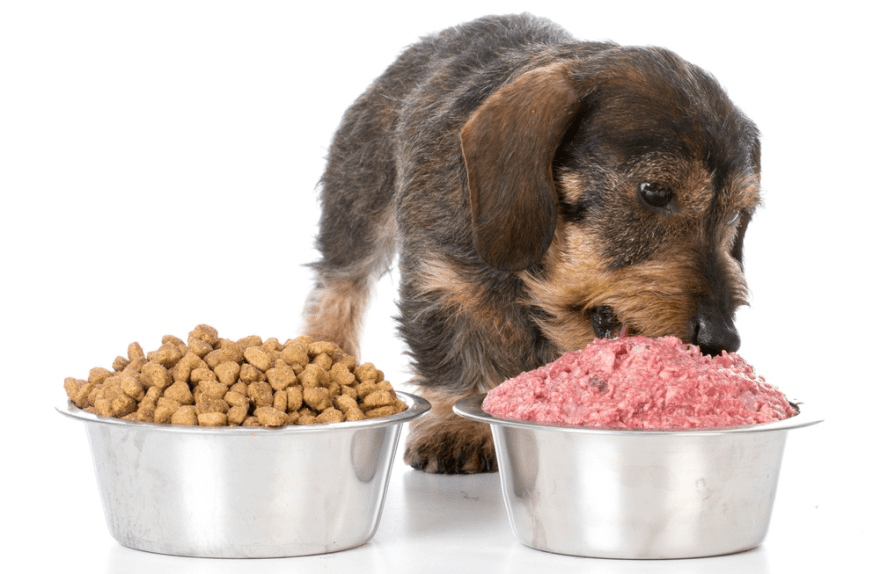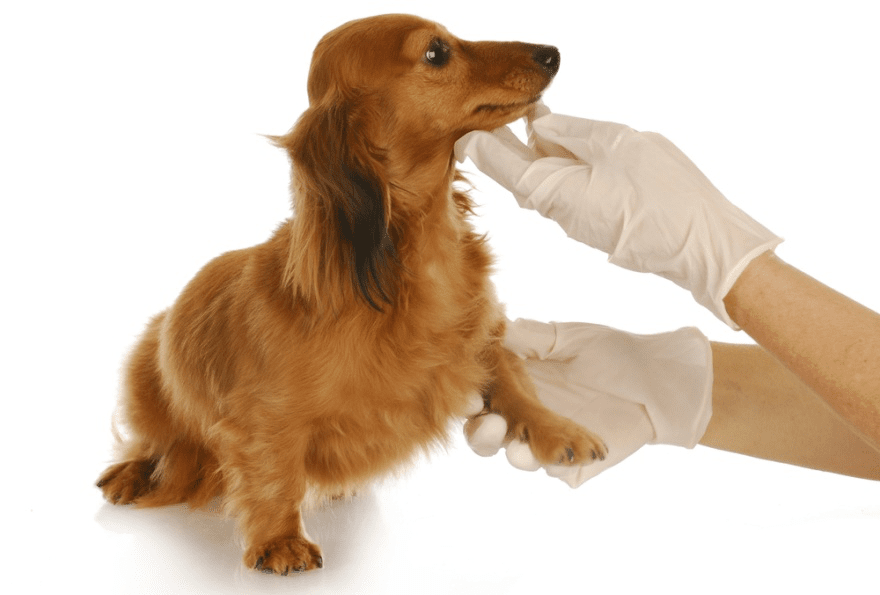Miniature Dogs: Health & Food
What Is a Miniature Dog?

The term “miniature dog” basically refers to two different types of dinky dogs. The first is a dog that is a miniature version of a larger breed with the same name (e.g. a miniature poodle is the smaller version of a standard poodle). The second is a dog that is simply a small dog breed such as the Pomeranian. Both of these types are good breed choices for various reasons. People choose them because they are less likely to bowl over small children, they are good apartment dogs, they are easier to manage for owners who may have physical limitations, they travel easily, and, of course, for personal preference. The following are some of the smaller miniature dogs:
- Chihuahua
- Miniature Pinscher
- Miniature Schnauzer
- Miniature Dachshund
- Italian Greyhound
- Shih Tzu
- Yorkshire Terrier (and other types of terrier such as the Boston Terrier)
- Affinpinscher
- Pomeranian
- Papillion
- Pekingese
- Toy Poodle
Whichever dog breed you prefer, miniature dogs are interesting as they obviously are not bred for the same reason as many larger breeds were. Larger breeds were often used as workers, herders, or protectors. Small dogs seemed to have been bred in the Middle East and their smaller traits were helpful in a more compact, urban society. Less space so smaller dogs. Many of these small breeds are fun-loving and energetic. However, they can be yappy as they react to outside stimuli, but this can be dealt with through socialization and training.
Health Issues for Miniature Dogs
Every miniature dog breed is unique—but that means they have unique issues. To be happy and healthy, they need to be raised from puppy to adulthood with appropriate exercise and diet. Proper support of your miniature pup means they will be able to give you years of companionship.

Most of these little breeds are generally healthy dogs. However, they have some medical concerns that tend to be specific to their stature. These medical predispositions should be taken into consideration when assessing the best lifestyle for them. Activity level and nutrition are something that their veterinarian can help with. Potential medical issues for small breed dogs can be:
- Luxating Patella (knee issues)
- Collapsed trachea
- Hip dysplasia
- Alopecia
- Eye problems
- Dental issues
- Skin issues
To combat these issues, these miniatures need to exercise—even the most popular dog breeds. They do not need intensive exercise but benefit from numerous smaller outings or simply some fetch indoors. Their little legs have to work a lot longer and harder than a big dog. For every large dog’s step, a little one takes four or five. That does not mean they don’t need to exercise; it just means they should do activity suitable for their size. Each dog will have its own activity they will enjoy every day.
Along with exercise, socializing is helpful for young dogs. Having stimulating and changing physical activity keeps both the body and brains adapting and healthy of these tiny dogs. Once you have committed to daily physical activity and some socialization, you also need to look at food and nutrition that suits your little dog.
Best Food for Your Miniature Dog
Good nutrition is as important as exercise and activity for every dog breed. Figuring out the right food is important in combating potential medical issues while keeping your pup happy and fit. Small dogs need quality protein and fat with the first ingredient on the list being a named meat. You want named animal fats with no artificial ingredients. Along with good food, make sure they have fresh water throughout the day. You need to be aware of calories, so your miniature dog does not become overweight. Their small frames should not carry extra pounds if you want them to be healthy as they age.
Food for Your Miniature Puppy
Blue Buffalo Life Protection Formula for Small Breeds
Blue Buffalo Small Breed Chicken
This product offers a solid nutritional foundation for your miniature pet. Being tiny does not mean small nutritional needs. This recipe is nutrient-rich with real meat as the primary source of protein and includes what they call “Super 7” ingredients with antioxidants. It also offers a good number of carbohydrates and all the vitamins and minerals your miniature puppy will need.
Pros: Small pieces for toy breeds, promotes tartar removal, protects joints
Cons: Can cause digestive issues, possible allergens
Royal Canin X-small Puppy
This product has a simple recipe that focuses on sensitive digestive systems of little dogs. Easily digestible proteins, prebiotics to help digestion, and enough carbohydrates to meet their energy levels. This recipe is designed to support a quickly growing puppy and aid their immune system.
Pros: Extra small pieces, easy to chew for smaller jaws, good fiber
Cons: New recipe so need to watch for digestive changes
Food for Miniature Dog Adults
Caster & Pollux Organix Grain-Free Organic Small Breed
This recipe is a great organic option for your small pet. It is grain-free with a balance of meat, vitamins, and minerals. It has omega-3 and omega-6 fatty acids to protect their skin and coat and calcium and phosphorus to keep dental issues at bay. Overall, it’s a great option for your adult miniature and even better if they need a grain-free option to avoid allergens.
Pros: Organic free-range chicken, bite-size pieces, cooked in a grain-free facility
Cons: Higher price point, watch calorie intake
Royal Canin X-Small Adult
This recipe has balanced nutrients with everything your extra small pup will need in their food. It has EPA and DHA to support the brain, eyes, and skin. It has extra small kibble for little mouths and helps reduce tartar build up. It’s an easily digestible formula for digestive tracts that need a little extra TLC. It’s a great taste that your miniature dog will enjoy.
Pros: Extra small kibble, resealable bag
Cons: Higher carbohydrates
Conclusion
There are some really good dog foods brands out there that will give you optimal nutritional balance for your miniature dog. These small breeds need good quality food to keep their health in good shape. Make sure you have a conversation with your dog’s veterinarian about any potential medical issues that might crop up and consider their daily activity. This combination will be a great way to keep your miniature happy and healthy.
